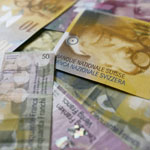
Foreign-registered cars dot the underground car park of Liechtenstein's biggest bank, where elevators sweep visitors to top-floor corridors of private meeting rooms. Liechtenstein, a tiny principality of 35,000 people nestled between Austria and Switzerland, still discreetly advises the very wealthy around mahogany tables, even though it recently relaxed its bank secrecy laws under pressure from the United States. Now, thanks to a U.S. tax probe into Swiss bank UBS and other pressure, a quiet revolution is brewing in the $7 trillion world of offshore banking, as banks realize that holding untaxed money can ultimately sting them. "Some countries have decided that they want to make it more difficult for Switzerland, Liechtenstein and other centers to serve their client base," said Prince Max, who oversees about $80 billion in client assets at LGT Group, owned by Liechtenstein's ruling family. "Our response to that is simple: if they do not allow us to serve our clients here, we go there," the prince, the second son of the ruling monarch, said in an interview in an exquisite wood-paneled office overlooking the snow-capped Alps. – Reuters
Dominant Social Theme: Even tax havens have to adapt.
Free-Market Analysis: What is behind all the pressure on tax havens? We've written about this before. The common analysis holds that Western governments are stressed, so they need the money, and tax havens have it. But surely this pressure has been going on for a while. In fact, it is our belief that the current economic downturn has merely provided an increased rationale to attack established tax havens.
How real is the rationale? Western governments actually have access to all the money they need through central banks. Taxes are seemingly an add on. In our opinion, therefore, the issues are political, and have more to do with power and control than with any need of revenue. To put it in perspective, the entire off-shore banking industry totals US$7 trillion, apparently – according to this article – and that is just about the amount of money that the US Federal Reserve has pledged, in one way or another, to generate over the NEXT YEAR or so to combat the current economic crisis.
How exactly does offshore banking break out?
Swiss banks administer about $3.7 trillion of assets. Of this, $2.2 trillion is offshore money, or cash owned by non-residents who often do not wish to declare it at home. British and Irish offshore centers such as the Channel Islands and Dublin hold $1.7 trillion. Singapore, with stricter secrecy rules than Switzerland, is a rising star with tiny_mce_marker.5 trillion. Private bankers in Switzerland and other centers would not say openly that much of the offshore money is untaxed and do not go on the record on tax evasion matters. But in private they admit this has been a major source of income for many years. In Italy, where some consider tax evasion a national sport, wealthy professionals in cities like Milan occasionally boast over dinner about how they have hidden money across the border. "People don't go to Switzerland for the weather — they go there for tax sheltering," said Jonathan R. Macey, Deputy Dean and Sam Harris Professor of Corporate Law at Yale Law School. (Reuters)
It is no doubt true that tax evasion is part of the business of private banking. But we don't think it is going to go away; honestly, we are of the opinion that the Western monetary elite has merely decided that the current group of tax havens is just too democratic and too accessible. Being cynical, we take it for granted that a certain group of individuals is always going to seek tax havens, and we are on record as fingering the Middle East, specifically the Arab Emirates, as the current tax haven of choice – for the most discerning and powerful of the Western monetary elite.
Why the Arab Emirates? Because of their political situations. The Emirates are all very small countries and all to a greater or less extent shaped by the West and in many cases controlled by the Western monetary elite in a way that such havens as Switzerland are not. The political power is concentrated in the hands of a few Sheiks that administer entirely opaque "sovereign funds" that are the perfect vehicles for funny business.

Even the Emirates may hit hard times during the current economic crunch, but this won't likely affect underlying trends. It comes down to control and access – and while tax havens are always necessary, their access does not have to be as broad as it has been, and indeed is seen as too broad. Of course, the Swiss (see next article) are not likely to go along with this perspective meekly. Switzerland is not Liechtenstein and there is considerable resolve and money power concentrated in that small country. As a result, offshore banking has entered a new and unstable phase, but that does not mean it is going to go away, only that it will become riskier and less predictable. The Swiss, especially, will offer their own answers.
